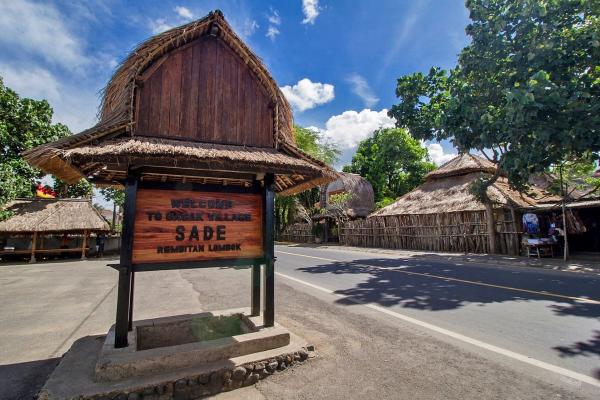Centre de Formation en Pâtisserie, Confiserie et Cuisine
About
Location :
Added by Jopie, at 01 January 2020
Detailed Information
Centre de Formation en Pâtisserie, Confiserie et Cuisine – Mali
The Centre de Formation en Pâtisserie, Confiserie et Cuisine (CFPCC) is a specialized educational institution located in Mali, designed to train and equip individuals with the skills required in the fields of pâtisserie (pastry making), confiserie (confectionery), and cuisine (cooking). It aims to serve aspiring chefs, pastry chefs, and confectioners, providing them with both the theoretical knowledge and practical experience to succeed in the culinary world.
While specific details about this institution may be somewhat limited, here is an in-depth look at the type of services and facilities you can expect from such a center based on common educational structures and programs found in culinary schools, as well as information regarding the culinary and confectionery landscape in Mali.
1. Location and Accessibility
-- Location: The Centre de Formation en Pâtisserie, Confiserie et Cuisine is situated in Bamako, the capital and largest city of Mali. It is likely to be located in an area with good access to the city’s public transport network, allowing students and visitors to reach the facility easily.-- Proximity to Key Locations: Being located in Bamako, the center benefits from proximity to the city’s central districts, which includes businesses, government offices, and cultural institutions. Bamako itself is known for its vibrant culinary scene, influenced by both traditional Malian cuisine and international flavors.
-- Transport Accessibility: The center is accessible via public transport options such as buses and taxis, which are commonly used in the city for daily commutes. The Bamako-Ségou Road and Route de l’Aéroport connect major districts, making it easier for students and professionals from surrounding areas to access the center.
2.
Educational Focus and Programs -- Pâtisserie (Pastry Making): One of the primary focus areas of the Centre de Formation is pâtisserie. This program would likely offer courses on traditional and modern pastry making techniques. Topics might include:-- Baking methods (cakes, tarts, pastries)
-- Decorating pastries and cakes
-- Techniques for making soufflés, éclairs, croissants, and other pastries
-- Working with chocolate, sugar, and other confectionery ingredients
-- Understanding the science behind baking (e.g., fermentation, dough consistency)
-- Using modern tools and equipment for pastry creation
-- Confiserie (Confectionery): Confectionery is a specialized field focusing on the creation of sweets, candies, and sugar-based products. Students would learn how to:
-- Craft traditional African sweets and desserts, as well as global confections
-- Work with different types of sugar, chocolate, and caramel
-- Make pralines, bonbons, marshmallows, and sugar sculptures
-- Develop expertise in working with fondants and icings
-- Create artistic pieces such as sugar flowers and decorative showpieces for cakes
-- Cuisine (Cooking): The culinary program would provide comprehensive training in a wide range of cooking techniques and styles. Key areas of study would include:
-- Malian Cuisine: The culinary center would focus on traditional Malian dishes like tô, jollof rice, yassa, and maafe, which are staples in the region.
-- International Cuisines: Students would also be exposed to international cooking techniques and cuisines, including French, Mediterranean, and Asian cuisines.
-- Advanced Cooking Techniques: This might include culinary arts like sous-vide cooking, food presentation, working with proteins, sauces, stocks, and broths, and understanding food textures.
-- Menu Planning: Training in how to create and organize meal plans, design restaurant menus, and cater for large groups would also be important parts of the curriculum.
3. Facilities and Infrastructure
-- Modern Kitchens and Labs: The center would be equipped with state-of-the-art kitchens, baking labs, and workshops for students to gain hands-on experience in creating pastries, candies, and various dishes. These kitchens would have professional-grade stoves, ovens, mixers, and other tools required to prepare both traditional and contemporary dishes.-- Classrooms and Theory-Based Learning: Alongside practical training, students would be offered classroom learning where they can study culinary theory, food safety standards, nutrition, kitchen management, and customer service skills.
-- Specialized Equipment: For pastry and confectionery work, specialized equipment such as chocolate tempering machines, sugar boiling equipment, pastry cutters, and mixers would be available to students for practice and experimentation.
-- Outdoor Learning Opportunities: Depending on the structure of the center, there may also be opportunities for students to practice cooking and baking outdoors, possibly in a controlled environment for events, festivals, or community-based food experiences.
4.
Target Audience -- Aspiring Chefs and Pastry Chefs: The center is aimed at individuals who wish to build a career in culinary arts, pastry making, and confectionery. This could include both newcomers to the field and individuals looking to enhance their skills or specialize in a specific area.-- Culinary Enthusiasts: For hobbyists or food enthusiasts, there may be short-term workshops and cooking classes for those interested in improving their cooking or baking skills for personal enjoyment or community events.
-- Professional Development: The center also caters to industry professionals looking to upgrade their skills, whether they work in restaurants, hotels, cafes, or other food-related industries. Continuing education and certification programs may be offered to help professionals stay current with trends and new techniques in the food and hospitality sectors.
5. Accreditation and Recognition
-- Malian Culinary Standards: The center’s programs would likely align with the Malian Ministry of Tourism and Culture, which oversees the standards for training in the hospitality and culinary industries. Diplomas and certifications awarded by the center would be recognized by employers within the local industry.-- International Partnerships: There may be international collaborations with culinary schools in countries known for their culinary traditions, such as France, Italy, or Morocco. These partnerships could allow students to access broader culinary knowledge, exchange programs, and global work opportunities.
6.
Community Engagement and Impact -- Culinary Tourism: Mali is home to a rich culinary culture, and the center could play a significant role in boosting culinary tourism by training chefs capable of showcasing Malian cuisine to global audiences. Students could learn how to incorporate local ingredients into high-quality dishes, presenting them to tourists and international clients.-- Promoting Local Ingredients: One of the key features of the center might be its emphasis on using local ingredients that are widely available in Mali, such as millet, rice, fonio, shea butter, baobab, and local spices. By focusing on traditional Malian ingredients, the center could contribute to the growth of local agriculture and promote sustainable food practices.
-- Support for Entrepreneurship: Many graduates of the center would go on to establish their own pastry shops, catering businesses, or restaurants. The center would likely offer business development support, teaching students how to run successful food-related businesses, including budgeting, marketing, and customer relations.
7. Culinary Events and Competitions
-- Cooking Competitions: The center may organize or participate in cooking and baking competitions, either locally or internationally, to showcase the talents of its students. These events allow students to test their skills in real-world scenarios and gain exposure in the culinary community.-- Culinary Festivals and Showcases: The center may also host events where students can demonstrate their creations, such as public bake sales, community food events, or cooking shows. These activities allow students to interact with the public and learn the practical aspects of food service and presentation.
-- Networking Opportunities: Participation in national and international food festivals, trade fairs, or culinary conferences could also be encouraged, allowing students to build networks with professionals and organizations in the culinary and hospitality industries.
8.
Mali’s Culinary Scene and Global Influence -- Malian Cuisine: Mali's cuisine is deeply rooted in its diverse ethnic groups and rich agricultural history. Dishes are often hearty and flavorful, with staples like tô (a millet-based dish), jollof rice, and maafe (peanut stew). The center's focus on both local and international culinary techniques would help preserve and modernize these dishes while incorporating global food trends.-- Growing Interest in African Culinary Arts: African cuisine is gaining global attention, and Mali, with its rich food heritage, is at the forefront of this movement. As African food traditions gain popularity worldwide, institutions like the Centre de Formation en Pâtisserie, Confiserie et Cuisine can help promote the flavors and techniques of Malian cuisine internationally.
Conclusion:
The Centre de Formation en Pâtisserie, Confiserie et Cuisine in Mali offers specialized training for individuals passionate about pursuing careers in pastry making, confectionery, and cooking. With an emphasis on local culinary traditions and modern techniques, the center serves as a key educational institution for aspiring chefs and entrepreneurs. The facility’s high-quality training, local ingredient use, and connection to Mali’s growing culinary scene make it an essential part of the region’s hospitality and tourism industries. By focusing on skill development, creativity, and entrepreneurship, the center helps shape the future of Mali’s culinary professionals.Add missing information
Reviews
No reviews yet. Be the first to add a review.









